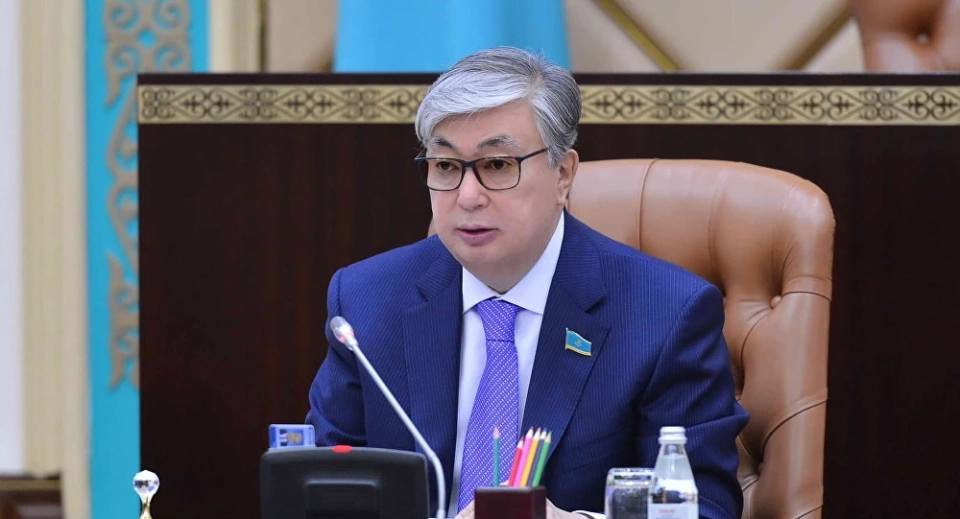Why are ministers and other officials in Kazakhstan dismissed after a year of work or less?
The dismissals with the wording "released from office by presidential decree" have become a common occurrence in Kazakhstan for ministers and high-profile officials who have worked for less than a year. Usually, there are no official comments, which raises questions: is this a targeted renewal of power or evidence of instability in government structures? This was reported by Azattyk Asia.
PERSONNEL TURBULENCE
At the UN General Assembly in New York, Kassym-Jomart Tokayev stated that countries with large energy resources cannot fully embrace the "green" agenda. Upon returning to Astana, he dismissed his advisor and special representative for international environmental cooperation, Zulfia Suleimenova, who held this position for two years — a significant term for a civil servant.
Before becoming an advisor, Suleimenova was the Minister of Ecology and Natural Resources — her term lasted only eight months, and prior to that, she worked as a deputy minister in the same department for just ten months.
In 2023, Tokayev, while introducing members of the Cabinet at an event, proudly mentioned that the government includes "young officials in their thirties," among whom were Suleimenova and another minister, Askhat Oralov, who was appointed head of the Ministry of Culture and Sports at the age of 32. He also served for eight months.
Ministers who have served briefly include not only the youth. Syryma Sharipkhanova was appointed head of the Ministry of Emergency Situations in June 2023 at the age of 59, but remained in this position for less than eight months.
49-year-old Nurlan Baibazarov held the position of Minister of National Economy and Deputy Prime Minister for ten months. He was dismissed at the end of 2024.
Kanat Sharalpaev, who headed the Ministry of Industry and Construction at 41, worked for about a year and a half, and in February 2025 was appointed assistant to the president for economic issues, but held this position for only seven months.
In October of this year, Tokayev dismissed the head of the internal policy department of the presidential administration, Abzal Nukhenov, who held the position for only seven months. However, Nukhenov did not remain unemployed: he became the deputy akim of Almaty. The official statement from the akimat states that the mayor, Darkhan Satybaldy — who himself came to the post from Akorda, where he was deputy head of the administration for only four months — appointed Nukhenov as his deputy "in agreement with the administration" of the president.
Political scientist and director of the Risk Assessment Group Dosym Satpaev notes that under President Tokayev, there is chaos in the government apparatus, while under Nazarbayev, there was a certain stability within the elite, formed by the long rule of the first president.
— During Nazarbayev's time, a circle of political players was formed: those who were in his circle for many years, — says Satpaev. — Tokayev is now creating his own circle, including new people who were with him earlier, including during the January events. He is trying to appoint people who were not previously public figures to leadership positions. However, the problem is that Nazarbayev created a system with negative selection. Already in the 2000s, there was a decline in personnel potential: loyalty was placed above professionalism. Now we see a second wave of negative selection, where less qualified specialists are coming to leadership positions, which negatively affects the quality of public administration.
Satpaev believes that the government lacks clear development plans for the next five to ten years, and the absence of a strategy leads to a team being formed for specific tasks that often change, which also affects the personnel composition.
PERTURBATIONS IN THE KNB
Dismissals are occurring not only in civil structures but also in the security block. Recently, Kanatay Dalmatov was relieved of his duties as deputy chairman of the National Security Committee after serving only one year and six days.
There is instability in the KNB following the events in January. Authorities arrested Karim Massimov and his deputies, accusing them of attempting a coup and colluding with criminals (the trial of the former leadership was held behind closed doors, and details are unknown). In early 2022, Tokayev appointed new people to the committee, but many of them did not last long.
Murad Nurtleu, a close associate of Tokayev, served as the first deputy chairman of the KNB for less than a month.
In the summer and autumn of 2024, Tokayev dismissed several deputy chairmen of the KNB: Marat Kolkobaev, Zhanat Elimanov, Askar Amerkhanov, who was also the director of the foreign intelligence service, Ruslan Seisembaev, and Bakytbek Kozhanov. All, except for Kolkobaev, worked for about a year or less. Elimanov was returned to the financial monitoring agency, where he worked before joining the special services, and no information was provided about the appointments of the others or the reasons for their dismissals.
When Amerkhanov, appointed deputy chairman of the KNB after the events in January, received the parallel position of director of the foreign intelligence service "Syrbar" in 2024, it was perceived as a promotion. However, his unexpected dismissal in September of the same year caused confusion. Rumors linked his departure to the murder of Kazakh opposition journalist and political émigré Aidos Sadykov in Ukraine. He was shot outside his home in Kyiv, where he had lived with his family for the past few years.
The investigation in Ukraine named two citizens of Kazakhstan, Meyram Karataev and Altai Zhakhanbaev, as suspects, who, according to the investigation, left the country immediately after the crime was committed. Journalists established that these individuals may have connections to the KNB, but the agency stated that they do not have such employees. Karataev was declared wanted, while Zhakhanbaev, according to the Prosecutor General's Office, turned himself in to the police, but no information about his prosecution has been reported.
[b]RESIGNATIONS TO "REDUCE PROTEST POTENTIAL"?[/b>
A year after Amerkhanov's dismissal, he found himself in the spotlight again. In early autumn, the internet resource Orda.kz published information about the detention of several high-profile officials. The editor-in-chief of the publication, Gulnara Bazhkenova, reported that along with Amerkhanov, Altai Zhakhanbaev and Meyram Karataev were also detained, as well as businessman Gadji Gadzhiev, whom she referred to as the "overseer" of the Kazakhstan-China border.
However, public attention was focused on another figure, Murat Nurtleu, who at that time held the position of Minister of Foreign Affairs and Deputy Prime Minister. According to Bazhkenova, Nurtleu, after working less than a month as the first deputy of the KNB following the January events, created a shadow structure that used the committee for its own interests, engaged in surveillance and persecution of dissenters, and organized smuggling from China, and was involved in the murder of journalist Sadykov.
Government agencies denied the reports from Orda.kz, but no legally formalized claims were made against Bazhkenova.
Several weeks later, Tokayev dismissed Nurtleu from his position as minister and deputy prime minister, where he had worked for over two years. Dosym Satpaev considers Murat Nurtleu's resignation to be a consequence of "internal political conflicts related to the preparation for the transition of power."
— If we abstract from the political component and look only at the economic aspects, frequent changes in government reduce the country's attractiveness for investors, as working in conditions of uncertainty creates difficulties, — says Satpaev. — This also negatively affects Kazakh business, which is expecting changes in the rules of the game with the arrival of a new prime minister or minister of the economic block. Ultimately, this reflects on the economy, worsening its condition, which again forces the president to change people because he believes they have not fulfilled their duties.
In Satpaev's opinion, the authorities are beginning to realize that, in addition to beautiful promises of a "new" and "just" Kazakhstan, proclaimed after the events in January, it is necessary to demonstrate real effectiveness to society. "The refrigerator beats the television."
— The refrigerator has become the determining factor, but the authorities cannot fill it and are trying to reduce protest sentiments through personnel changes, presenting them as steps to address problems, instead of addressing the essence of the government apparatus itself. It is unlikely that the authorities have a complete understanding of the scale of the problem, but considering events in other countries where protest sentiments are rising, the instinct for self-preservation forces them to think about how to maintain stability before the start of the transition of power, to prevent a repetition of the events of January, — concludes the political scientist.
Read also:
Court in Turkey acquits former Istanbul mayor Ekrem İmamoğlu in corruption case
As reported by Cumhuriyet, the court dismissed the charges against İmamoğlu regarding the alleged...
The head of the village council named after A. Masaliev has resigned
In the Kadamjay district of the Batken region, there have been changes in the local administration:...
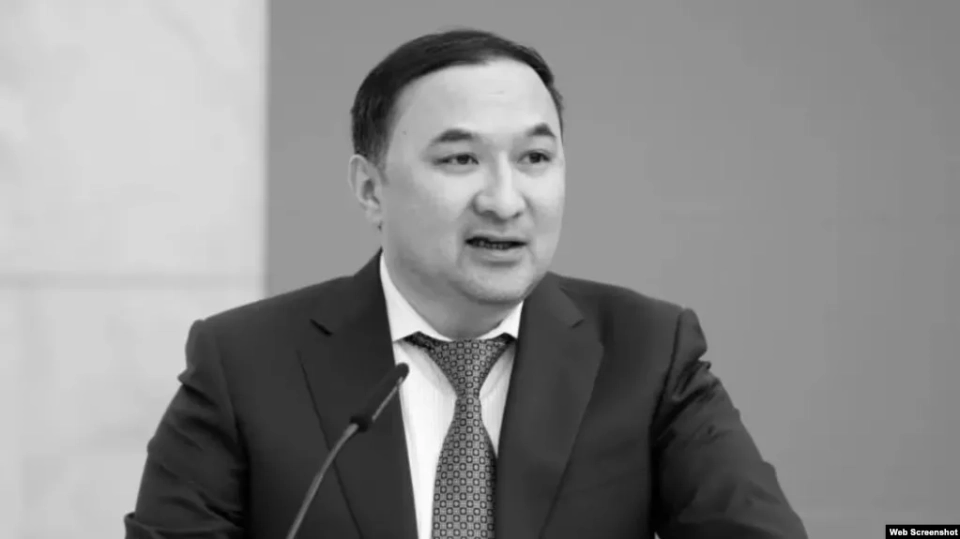
Former advisor to Tokayev killed during a fight in Astana
In Astana, on the night of October 30, Yerzhan Babakumarov, who previously held high positions in...
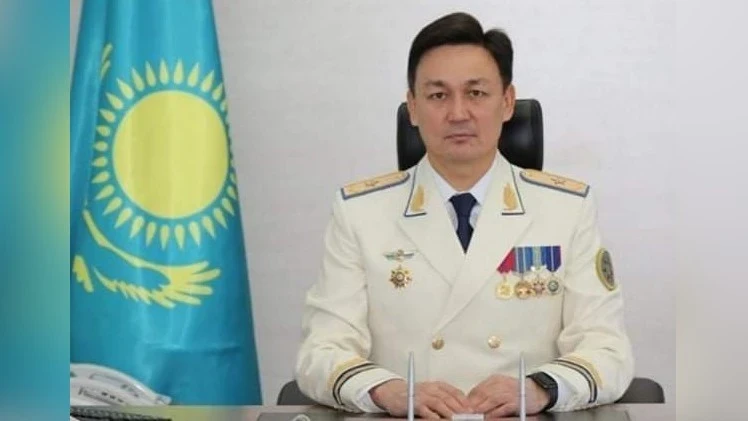
Tokaev appointed Marat Irmenov as Deputy Chairman of the National Security Committee of Kazakhstan
For the past year, this position was held by Kanatay Dalmataov, who was relieved of his duties by...
New Leaders Introduced in Osh (11 Names)
Today, October 31, a collegial meeting was held at the presidential representative office in the...
Deputy Head of the Cabinet Baisalov held talks with the Minister of Culture of the Russian Federation Lyubimova
Edil Baisalov, serving as the Deputy Chairman of the Cabinet of Ministers, held talks with the...
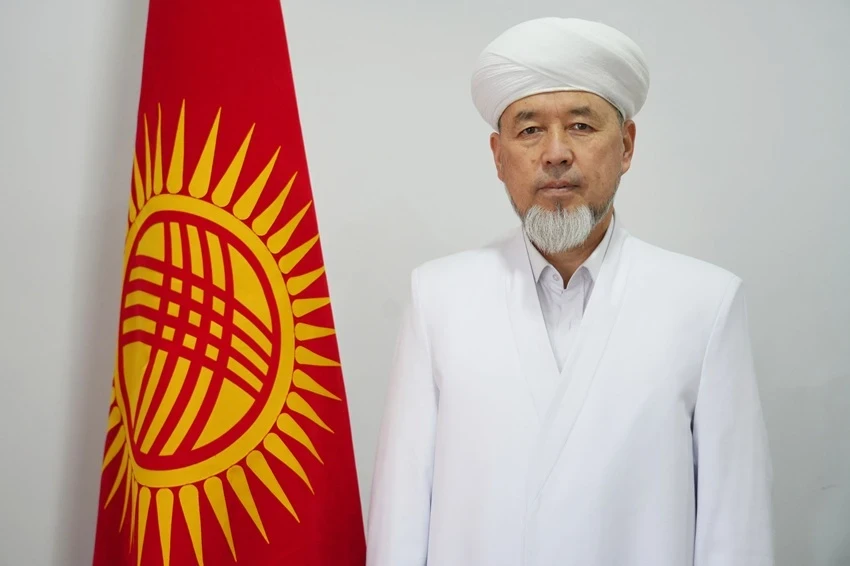
Samidin Atabaev appointed head of the city of Osh's Qaziat
By the decision of Mufti Abdulaziz Zakirov, Samidin Atabaev has been appointed as the head of the...
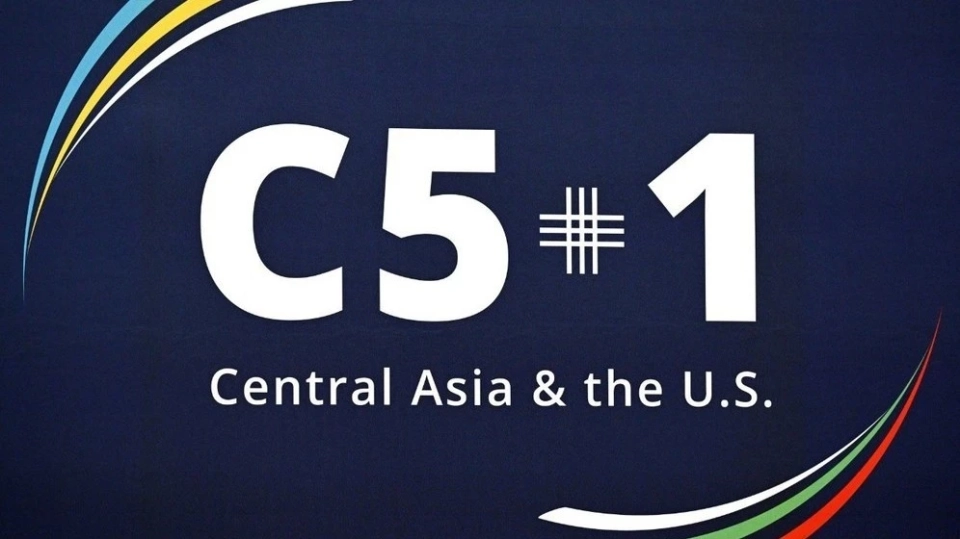
Trump invited the leaders of Central Asian countries to the C5+1 summit in early November
The press service of the President of Kazakhstan reported that Kassym-Jomart Tokayev expressed...
The President made changes to laws related to healthcare and education
President Sadyr Japarov has approved the law "On Amendments to Certain Legislative Acts of the...
In the Talas Region, more than thirty cases of death among children under 1 year old have been registered since the beginning of the year: What is the cause of 90% of them?
The regional board in Talas, attended by the leadership of the presidential representative office,...
AI Reduces Opportunities for Entry-Level Professionals in the U.S. Harvard Study
According to a study conducted by Harvard graduate students Syed Hosseini and Guy Lichtinger,...
Munara Mamadjanova has been relieved of her duties as Deputy Head of the Moscow District.
The Deputy Akim of the Moscow District, Munara Mamadjanova, has been dismissed. This became known...
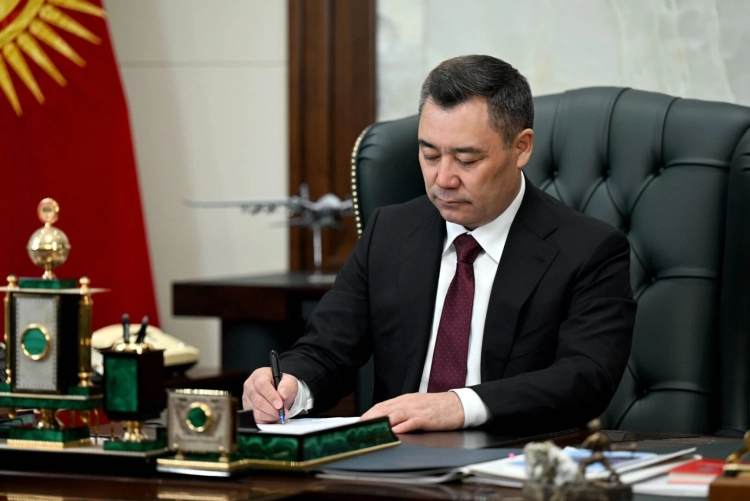
Ulanbek Satiev Appointed General Director of NTRK
The President of Kyrgyzstan, Sadyr Japarov, confirmed the appointment of Ulanbek Satiev as the...
Film director Mikhalkov was awarded the Order of Dostuk. He is in Bishkek as part of the Days of Russian Culture in the Kyrgyz Republic.
At the event dedicated to the Days of Russian Culture in Kyrgyzstan, the Chairman of the Cabinet of...
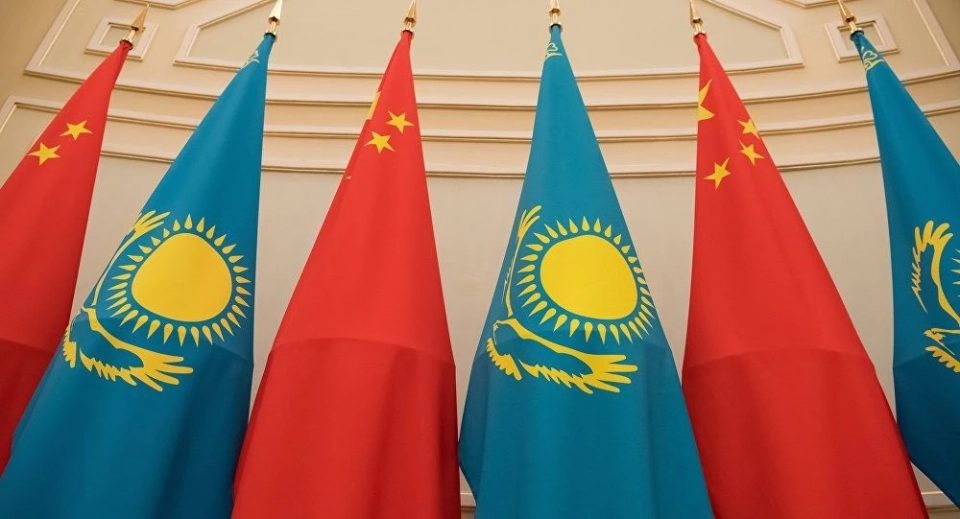
The news about the record import of renewable energy equipment to Kazakhstan has been removed from the Kazakhstani websites "Kursiv" and Forbes.
The removal of news regarding the sharp increase in imports in the renewable energy sources (RES)...
The Case of the Koy-Tash Events. The City Court Tightens the Sentence for Irina Karamushkina
At the meeting of the Bishkek City Court regarding the events in Koi-Tash, a decision was made to...
Bakhityar Nematov Appointed Head of the Railway Station in Osh City
Bakhtiyar Saytmuratkhanovich Nematov has been appointed as the head of the Osh railway station....
The Cabinet has increased the amount of quality work bonuses for workers in the cultural sector
The Cabinet of Ministers approved resolution No. 631, which introduces changes to the terms of...
The Mayor of Istanbul Faces New Charges. This Time for Political Espionage
New allegations of political espionage have been made against Istanbul Mayor Ekrem İmamoğlu,...
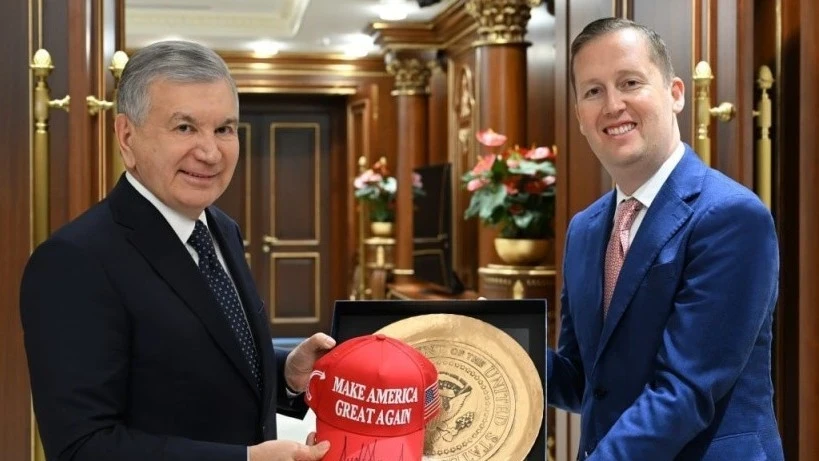
The President of Uzbekistan discussed the agenda of the "C5+1" summit with Trump's special envoy.
The President of Uzbekistan, Shavkat Mirziyoyev, held a meeting with a delegation from the United...
Putin's Special Representative: Russia and Ukraine Are Close to Ending the War
Kirill Dmitriev, who holds the position of special representative of the President of Russia, noted...
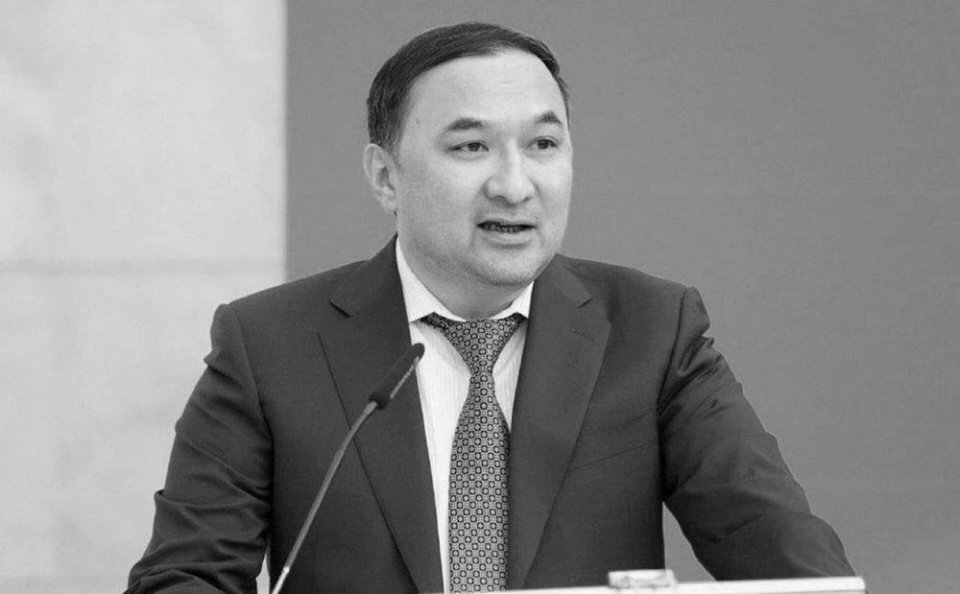
Former advisor to the President of Kazakhstan killed during a fight in Astana
Yerzhan Babakumarov Yerzhan Babakumarov, who was 56 years old, got into a conflict with a...
In 9 months, the Ministry of Labor identified 444 children affected by violence
During the first nine months of 2025, 444 children became victims of various forms of violence...
Kyrgyzstan: Personnel Changes from October 27 to 31
Throughout the week, several significant personnel changes occurred in Kyrgyzstan. Dismissal of...
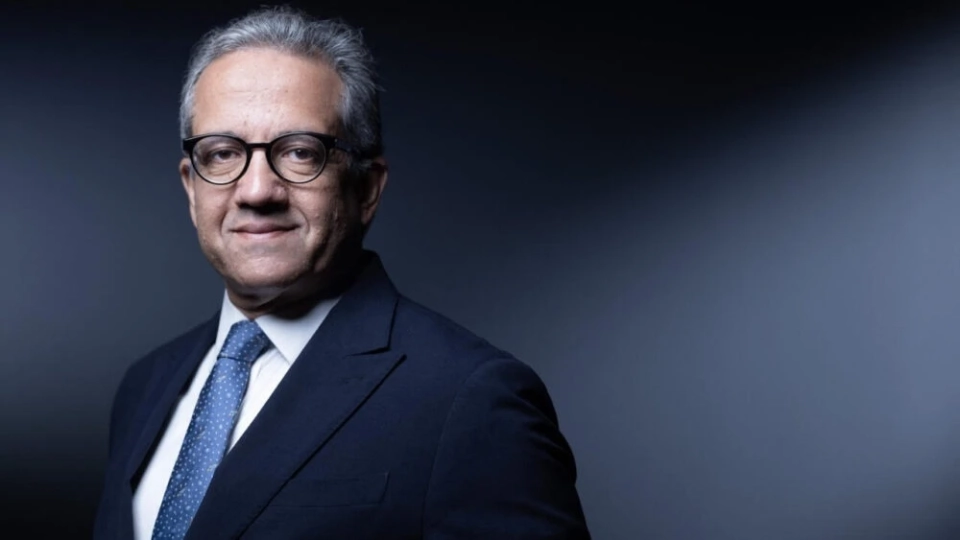
The UN has nominated a new head of UNESCO
According to information from Arab News, the UN cultural agency has chosen Khaled El-Anani, who...
A forum is being held in Bishkek for the Snow Leopard Day
On October 23, an international forum titled "Business, Ecology, and Sports — Ak-Irbis...
The Cabinet instructed to transfer irrigation channels and pumping stations to the state
The Cabinet of Ministers has made changes to the resolution "On the Effective Management and...
Kyrgyzstan: Personnel Changes from October 20 to 24
Over the past week, several changes have occurred in the personnel composition in Kyrgyzstan....
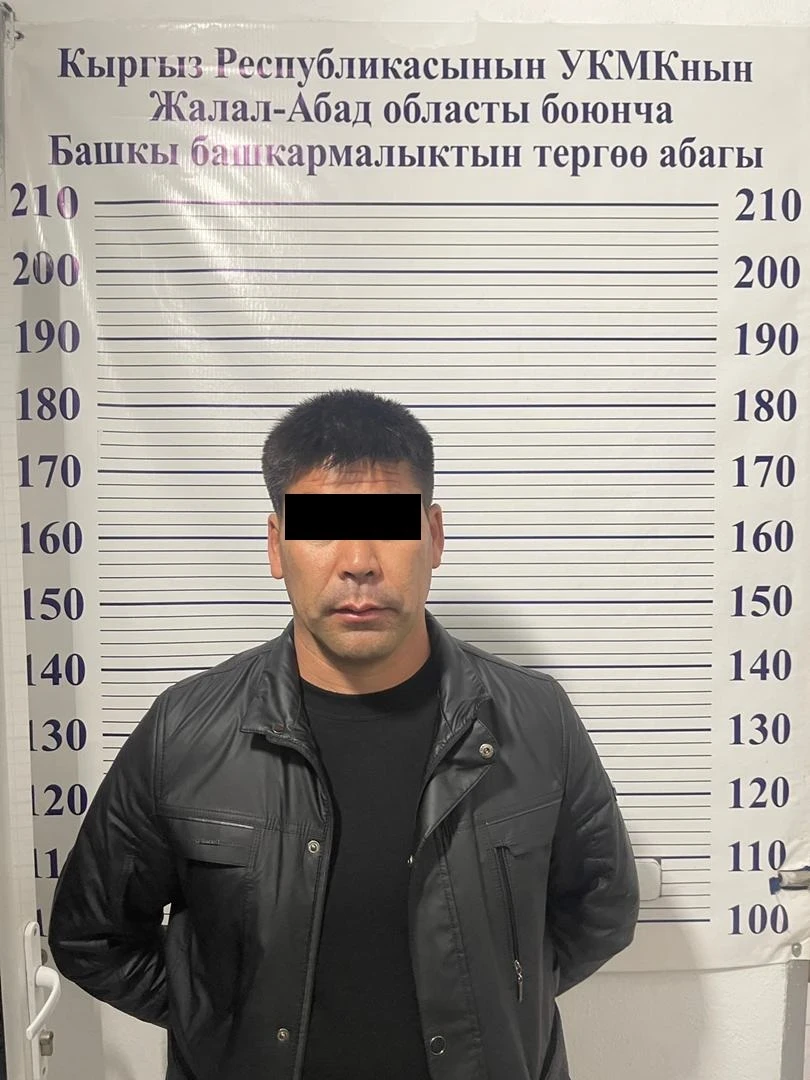
Vice Mayor of Tash-Kumyr Arrested for Land Fraud
According to the State Committee for National Security (SCNS), two high-profile officials from the...
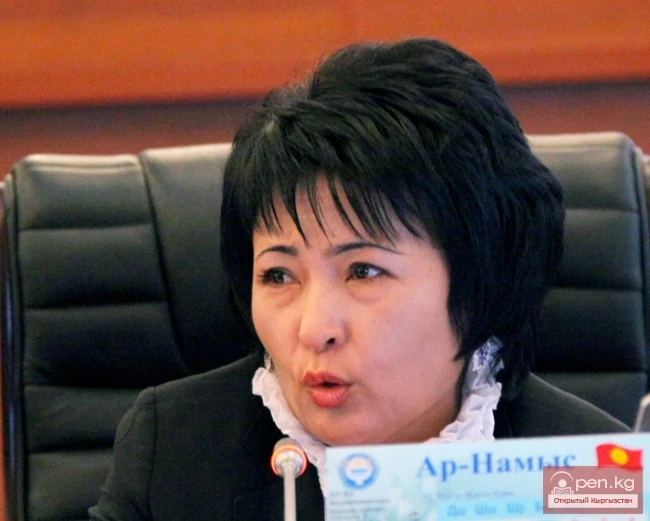
Kamila Talieva has been relieved of her duties as the Minister of Culture, Information, and Tourism of the Kyrgyz Republic.
On September 16, 2014, the President of the Kyrgyz Republic, Almazbek Atambaev, signed a decree...
In Bishkek, over 7,500 properties were recognized as illegal in 9 months
In the course of nine months in 2025, 7,539 objects were identified and recognized as illegal in...
A terrible accident occurred in Kazakhstan. 12 people died.
On October 23, a tragic accident occurred in Kazakhstan, claiming the lives of 12 people. According...
Failure to pay alimony for more than 12 months may result in imprisonment
The Deputy Head of the Bailiff Service under the Prosecutor General's Office, Kubanychbek...
The President's Plenipotentiary Representative Revealed When the Bypass Road Around the City of Osh Will Begin Construction
A meeting of the presidential representative office took place in the Osh region. As reported by a...
"Great Signal". Chanpen Zhao spoke about the pardon from Donald Trump
Changpeng Zhao expressed great gratitude to U.S. President Donald Trump, stating: "This...
Cultural center worth 150 million soms begins construction in the village of Bayetov
Kamchybek Tashiev, holding the position of Deputy Chairman of the Cabinet of Ministers and Chairman...
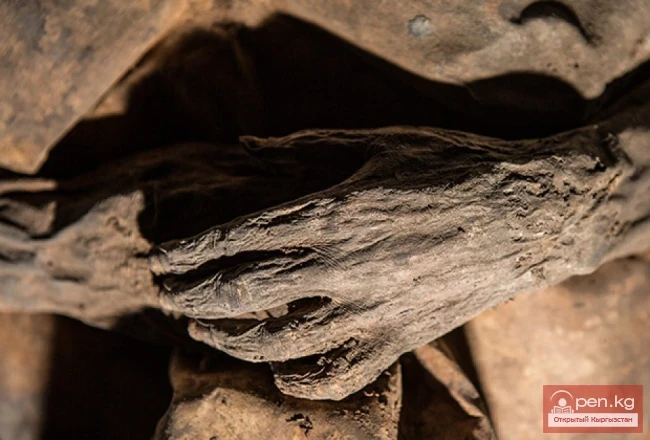
"The Case of the Mummy"
"The Case of the Mummy" The Minister of Culture of Kyrgyzstan, Tugelbay Kazakov, who...
Investments in fixed assets of Kyrgyzstan increased by 18.8% over 9 months, totaling 206 billion soms
- According to the Ministry of Economy, in the first nine months of 2025, the volume of investments...
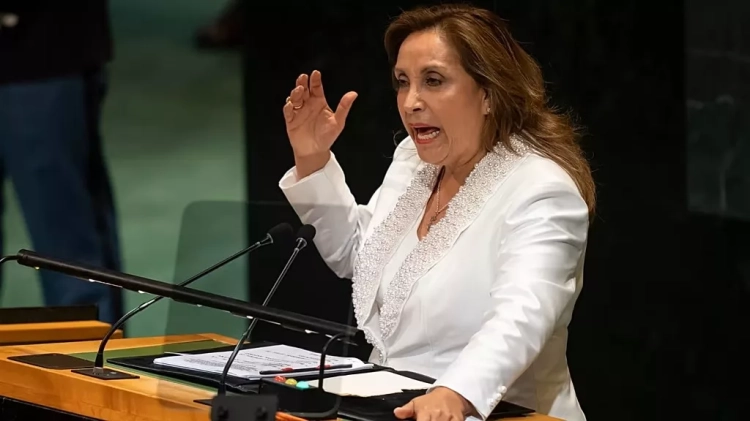
"‘Moral Incapacity’: The President of Peru Has Been Impeached, the Chairman of Congress Has Taken the Oath as Head of State"
The impeachment process was initiated after discussions of several proposals to remove Boluarte...
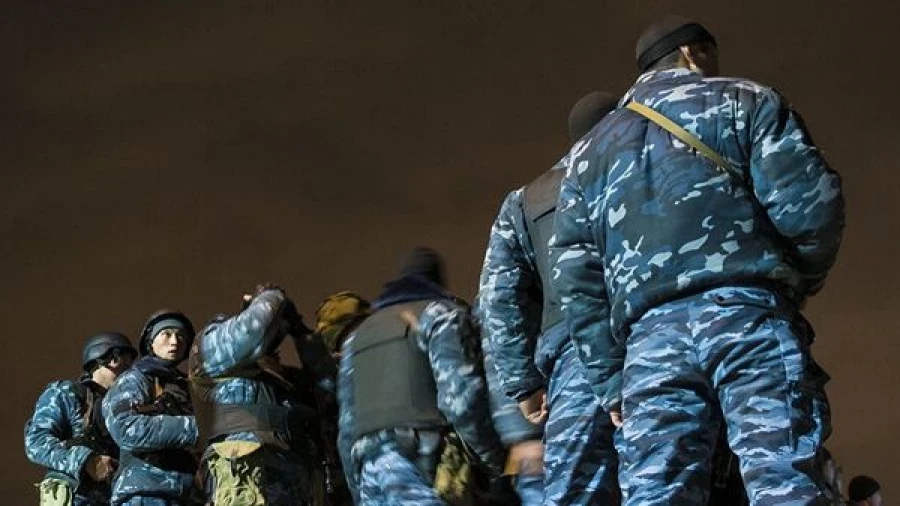
In Almaty, employees of the National Security Committee and the Ministry of Internal Affairs were detained for drug smuggling from the USA
Prisoners created a channel for drug delivery from the USA to Almaty In Almaty, the...
At least 143 citizens of Kyrgyzstan have died in the war in Ukraine
According to the "I Want to Live" project, which collects information about the...
The Federal Penitentiary Service Summarizes: More Inmates Have Rejected Criminal Influence, Thousands Are Learning and Working
The Collegium of the State Service for the Execution of Sentences (GSIN) held a meeting to...
